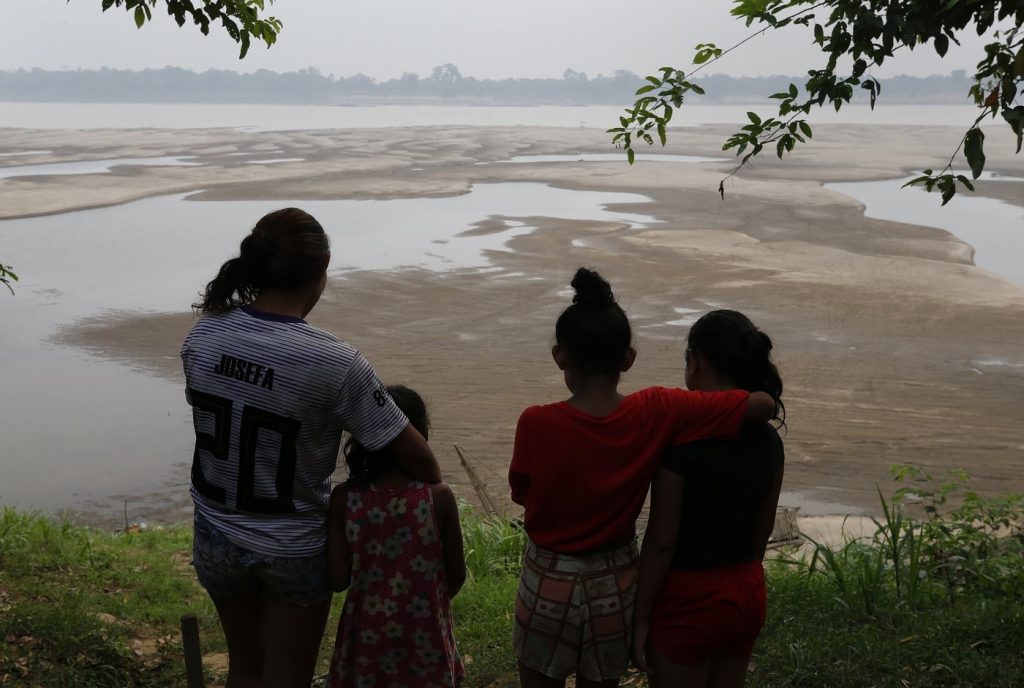In Puerto Narino, Colombia, Alexis Damancio Silva reflects on the challenges faced by his community during last year's extreme drought, which severely impacted the Amazon River. The drought led to the deaths of pink dolphins and fish, a decline in crops, and limited access to markets. Silva expresses hope that the U.S. government will provide funds for projects that enhance the resilience of Indigenous communities, such as solar panels for refrigeration and rainwater cisterns, highlighting the lack of support from the Colombian state.
Environmental advocates, however, are skeptical about the likelihood of U.S. assistance, especially following former President Donald Trump's freeze on almost all foreign aid. Concerns are rising over the potential consequences of Trump's return to office, particularly for the Amazon rainforest amidst his track record of withdrawing from international climate agreements and supporting aggressive development policies that threaten environmental conservation.
Andrew Miller, director of Amazon Watch, describes the implications of a Trump administration as ranging from troubling to catastrophic for the Amazon rainforest. In his first week back in office, Trump emphasized fossil fuel priorities, which aligns with his "America First" agenda that undermines international aid efforts. His confrontational approach was exemplified by threats against Colombian President Gustavo Petro when Petro refused military planes carrying deported migrants that Trump wanted to land in Colombia.
During Trump's first term, the budget for the U.S. Agency for International Development (USAID) fluctuated significantly, while under President Joe Biden, it has increased to $30.5 billion for 2024, with a focus on climate initiatives and humanitarian aid. The Biden administration imposed a 90-day funding freeze to reassess which programs will continue. In Brazil, where about 60% of the Amazon is located, illegal activities surged during Jair Bolsonaro's presidency, causing considerable environmental damage. However, current President Luiz Inácio Lula da Silva aims to prioritize Amazon protection.
Brazil's environment minister Marina Silva regards Trump's return as a significant challenge for U.S. democracy and international commitments. She acknowledges the strengthened global climate governance but warns of the ongoing struggles influenced by Trump's dismissal of climate issues. Since his previous election, U.S. banks have distanced themselves from environmental lending practices, which poses additional challenges.
The debate over development in the Amazon remains divisive in Brazil, with pro-development lawmakers advocating for economic growth, while opposing factions underscore environmental and Indigenous rights. Lula's administration has made strides in combating illegal activities, supported by U.S. commitments, including a historic $50 million pledge to the Amazon Fund aimed at conservation efforts.
Experts predict that Trump's policies will likely favor extreme right-wing candidates in Brazil, potentially undermining environmental protections. Jair Bolsonaro has already inflated concerns among environmentalists due to his partnership with Trump, and while he cannot run for office until 2030, his son Eduardo is a potential presidential contender.
The risk of significant cuts to U.S. foreign aid for climate initiatives remains a primary concern. Analysts expect that Trump's administration will emphasize budget cuts, impacting discretionary programs lacking strong domestic support. Historically, Trump has favored unilateral foreign policy, which raises alarms about the U.S. distancing itself from collective climate action strategies.
John Walsh from the Washington Office on Latin America highlights that funding cuts would significantly harm global climate mitigation efforts, stressing the urgency of cooperative action in combating climate change. In summary, the potential policies and priorities of Trump's administration pose a threat to environmental protections, Indigenous rights, and international climate cooperation, particularly in the fragile Amazon ecosystem.










